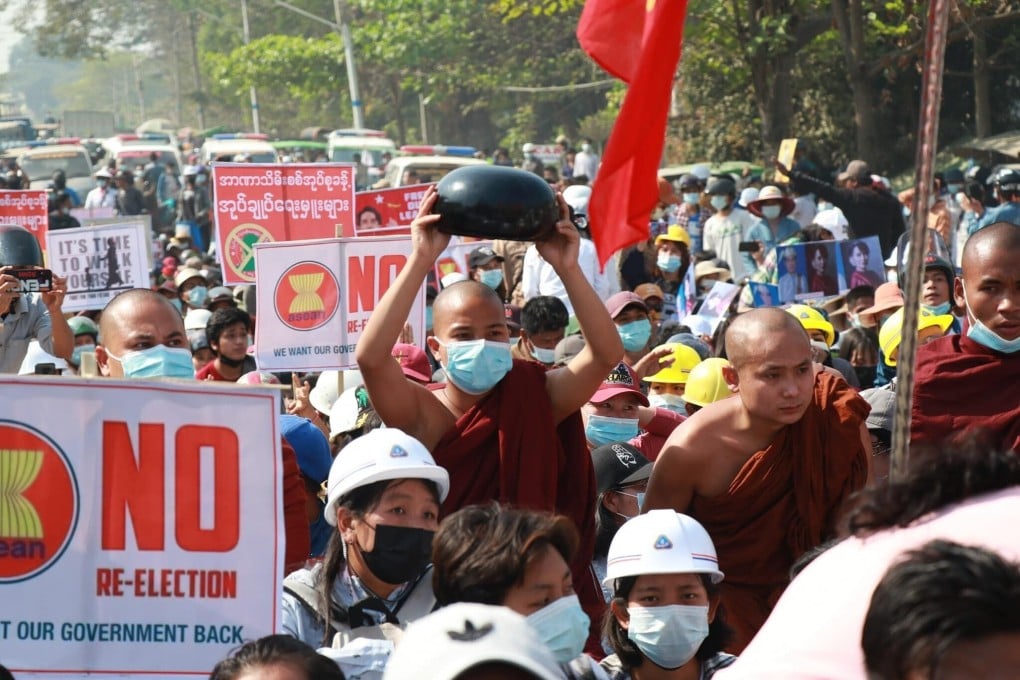Advertisement
Myanmar coup: from Chinese to Christian to Buddhist, most people of different faiths and ethnic groups unite to defy junta
- In a country in need of a shared dream, unprecedented unity across most ethnicities emerges, though among the Rakhine and Mon, feelings are mixed
- Many say they want not only to restore democracy but to build a more inclusive state ‘with everyone’
Reading Time:7 minutes
Why you can trust SCMP
6

Seven days after Myanmar’s military staged a coup to bring down its elected government, street protests opposing the junta began in earnest across most parts of the country including Myitkyina, capital of the resource-rich Kachin state that borders China.
Indigenous residents of Kachin state are from seven tribes and believe in three religions, but the area is also home to members of the Shan ethnic minority, migrant workers from the rest of Myanmar, and those of Indian and Chinese heritage. It is also where the Kachin Independence Army (KIA), considered one of Myanmar’s most powerful militias, continues to oppose the Myanmar military, known as the Tatmadaw.
Mawun Kaw, 32, an ethnic Kachin and an NGO worker, said distrust had long permeated society and those of different ethnic or religious groups did not interact much, even in her high school. But unity was on show in full force during last month’s protests.
Advertisement
“I have never seen people so united … since the coup we have been living in fear,” she said.
The first time she marched on the streets, people along the way cheered the group and offered food and drink. Many joined in, swelling the numbers from around 200 to 10,000. A few days later, a protest drew 30,000 to 40,000.
This was a far cry from the antimilitary protests as Myanmar embarked on its democratic transition about a decade ago. Back in 2012, when Mawun Kaw took part in a protest demanding the Tatmadaw release a Kachin refugee, only around 1,500 people joined; she said most other local residents were apathetic.
Advertisement
Advertisement
Select Voice
Select Speed
1.00x